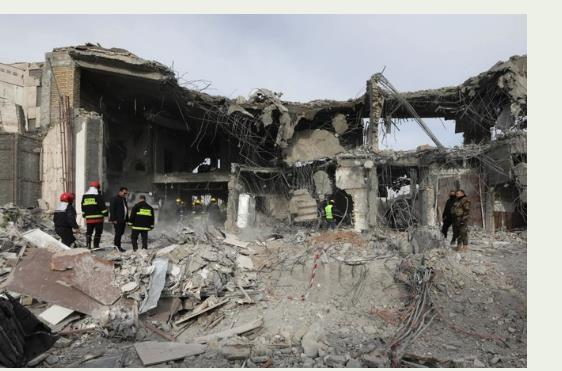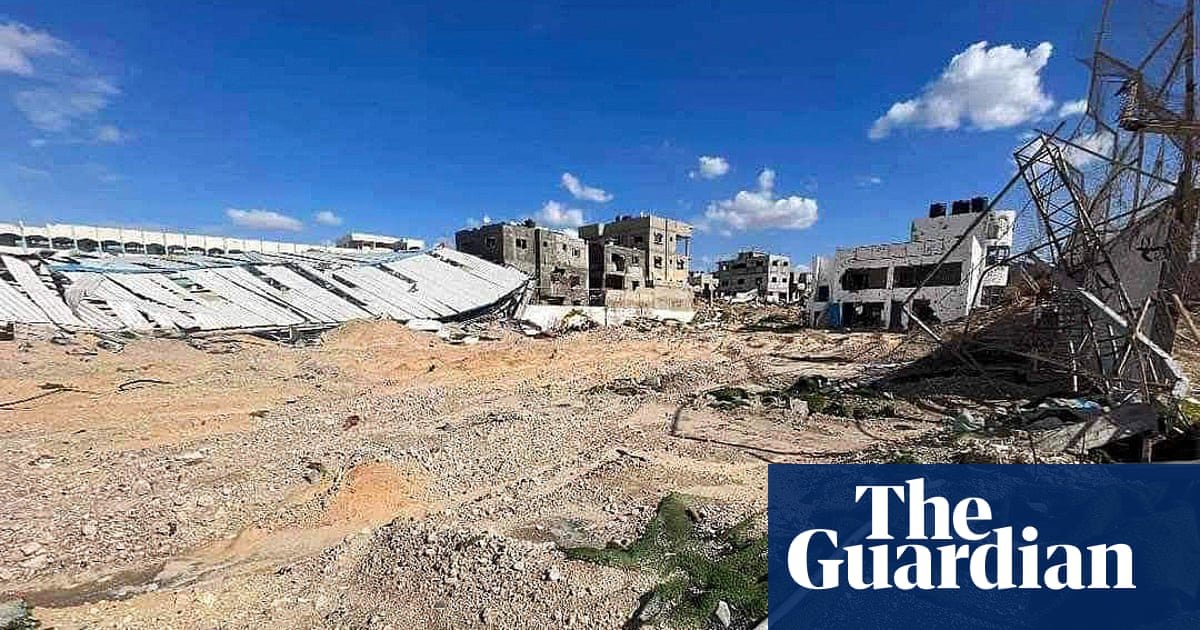
Much of the fear expressed early on in Israel’s war on Gaza that the conflict could spread has now been realized. Iran, in particular, has launched repeated attacks on its neighbors and beyond. A pattern is developing similar to what we witnessed during the days of the so-called Arab Spring, when Tehran exploited the peaceful protests in Arab countries, at times instigating them, to expand its influence, with considerable success. These actions belie Iran’s recently stated commitment to diplomacy and the peaceful settlement of disputes with its neighbors.
Relying on proxies and affiliates, Iran is expanding its sphere of influence through repeated attacks and threats, including in Pakistan, Iraq, Syria, Jordan and elsewhere. While some of these attacks could be seen as limited and direct responses to Israeli attacks, many of them are unrelated.
For example, on Monday, Iran’s Islamic Revolutionary Guard Corps said in a statement that it had launched a missile attack on a “headquarters of Mossad” in the Kurdish region of Iraq. However, the security council of the Kurdish Regional Government rejected that claim. It said that four civilians were killed and six injured after a house was hit in Irbil, the seat of Iraq’s Kurdish regional authorities.
Iraqi Foreign Minister Fuad Hussein also rejected Iran’s claim that the target attacked was Mossad-linked and said that Tehran was attacking Irbil because it could not confront Israel directly. Iran, he said, was present in Lebanon and Syria, right next to the border with Israel, and it could also attack Israel from Iranian territory with its long-range missiles, but it chose to attack Irbil instead.
The same day, Iran fired ballistic missiles into Aleppo, claiming to target a terrorist group, but without corroboration from independent sources regarding the nature of the target. In Jordan, what are believed to be Iran-supported militias and their affiliated drug traffickers have carried out brazen armed attacks during recent weeks, leading to retaliatory airstrikes by Jordan on their hideouts in Syria.
While some of these attacks could be seen as limited and direct responses to Israeli attacks, many of them are unrelated
Dr. Abdel Aziz Aluwaisheg
On Tuesday, Iran announced that it had launched a missile and drone attack against suspected terrorist targets in Pakistan. However, Islamabad has rejected the claim, reporting that two children were killed and three more injured in a small village in Balochistan.
In retaliation, Pakistan recalled its ambassador to Iran and blocked Tehran’s envoy from returning. On Thursday, it carried out retaliatory military strikes against what it described as “separatist militant hideouts” inside Iran.
Iran shares a 900 km border and enjoys normal relations with Pakistan. It could have used diplomatic channels to raise its concerns instead of attacking Pakistani villagers in their homes. Iran’s escalation has apparently raised serious concerns in Pakistan. In addition to the military and diplomatic actions taken by Islamabad, caretaker Prime Minister Anwaar-ul-Haq Kakar, who is attending the World Economic Forum in Davos, and caretaker Foreign Minister Jalil Abbas Jilani, who is visiting Uganda, will cut their trips short and return home.
Meanwhile, the US has said that it believes Iran was “deeply involved” in planning the ongoing operations against commercial vessels in the Red Sea. The US and other international forces operating in the area have repeatedly intercepted Iranian-supplied arms on their way to the Houthis, including a missile cache just last week.
In October, the Houthis launched missile and drone attacks against Israel in response to its war on Gaza, but it later began targeting what they believed to be Israel-bound ships in the Red Sea. While the Houthis’ stated objective is to stop the war in Gaza, there is little evidence that their antics have influenced matters there. And since at least Nov. 19, the militia has widened its targets to include other vessels that do not necessarily have any links to Israel.
Further afield, an IRGC commander said in late December that the Mediterranean Sea “could be closed,” Iranian media reported, without explaining how that would happen, since Iran has no direct access to the Mediterranean itself. “They shall soon await the closure of the Mediterranean Sea, (the Strait of) Gibraltar and other waterways,” the semi-official Tasnim news agency quoted Brig. Gen. Mohammed Reza Naqdi, “coordinating commander” of the IRGC, as saying. At the time, Yemen’s Iran-aligned Houthi group had begun its attacks on merchant vessels sailing through the Red Sea, leading some shipping companies to switch routes.
Naqdi talked of “the birth of new powers of resistance and the closure of other waterways.” He added that “yesterday,” the Gulf and the Strait of Hormuz had become “a nightmare for them,” and “today, they are trapped … in the Red Sea.”
Many of these attacks and threats are taking advantage of the devastating war in Gaza, which is now in its fourth month and where the official death count has exceeded 24,000, while the suffering and destruction have surpassed any this region has witnessed before.
A key contributing factor has been the failure of the UN Security Council to enforce international law, stop the war and deliver sufficient humanitarian assistance. When Israel is allowed to flout the rules of international law with impunity, with the support or acquiescence of great powers such as the US, UK and Germany, other countries will try to test those rules and do the same.
As a result, the longer Israel’s naked aggression against Gaza grinds on, the more likely other countries and armed groups are to also take the law into their own hands to expand their influence and settle scores, further destabilizing the region in the process.
Similarly, the lax enforcement of the arms embargo imposed on the Houthis by UNSC Resolution 2216 of 2015 has enabled them to build up their offensive capabilities to what we see today, allowing them to flout freedom of navigation.
A restoration of faith and respect for the global rules of conduct and the enforcement of international law is therefore sorely needed. While the US appears to be held hostage by a legacy policy of knee-jerk support for Israel, especially during an election season, other powers, big and small, need to step up to the plate. South Africa has done its part by taking legal action at the International Court of Justice against Israel, first for its actions in the West Bank and now against the war in Gaza, in the hope of stopping the war and providing accountability.
Dr. Abdel Aziz Aluwaisheg is the Gulf Cooperation Council assistant secretary-general for political affairs and negotiation. The views expressed here are personal and do not necessarily represent the GCC. X: @abuhamad1
Disclaimer: Views expressed by writers in this section are their own and do not necessarily reflect Arab News" point of view











